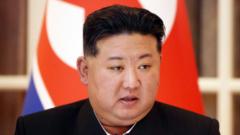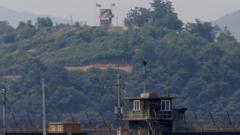The South Korean legislature has passed amendments to martial law to safeguard parliamentary integrity, following the tumultuous tenure of former President Yoon Suk Yeol. This development emphasizes the nation's commitment to protecting its democratic processes amid ongoing political strife.
South Korea Strengthens Martial Law Regulations Amid Political Turmoil

South Korea Strengthens Martial Law Regulations Amid Political Turmoil
In a response to a recent political crisis, South Korea's lawmakers have updated martial law rules to ensure legislative independence.
South Korea’s National Assembly has enacted critical revisions to martial law regulations in light of the recent political turmoil triggered by former President Yoon Suk Yeol's controversial decision to impose martial law in December 2024. The amendments explicitly prohibit any interference with lawmakers attempting to access the Assembly, a prominent response to the upheaval experienced during Yoon's administration.
In December, as Yoon sought to assert control amidst growing dissension from scandals and a parliamentary impasse, military forces converged on the Assembly, forcing lawmakers to resort to climbing walls to undermine his martial law initiatives. The newfound legislative amendments not only restrict military and police access to the National Assembly but also require explicit authorization from its speaker.
Yoon, facing allegations of corruption and a subsequent impeachment that removed him from power, had justified his martial law declaration by claiming a need to protect the nation from alleged "anti-state" elements sympathetic to North Korea. However, skepticism surrounded his justification as he failed to provide substantial evidence. The political shockwaves from his rule have significantly weakened the standing of his political party, leading to a snap election in June where opposition leader Lee Jae Myung was elected president.
At a recent press briefing, President Lee indicated a shift in diplomatic strategy, suggesting a focus on improving relations with North Korea, contrasting sharply with Yoon’s hardline approach. Despite the changes in leadership, the political landscape in South Korea remains fraught with division. The recent parliamentary vote confirming Lee's nominee for prime minister was boycotted by Yoon's party, highlighting the lingering rift in South Korean politics.















